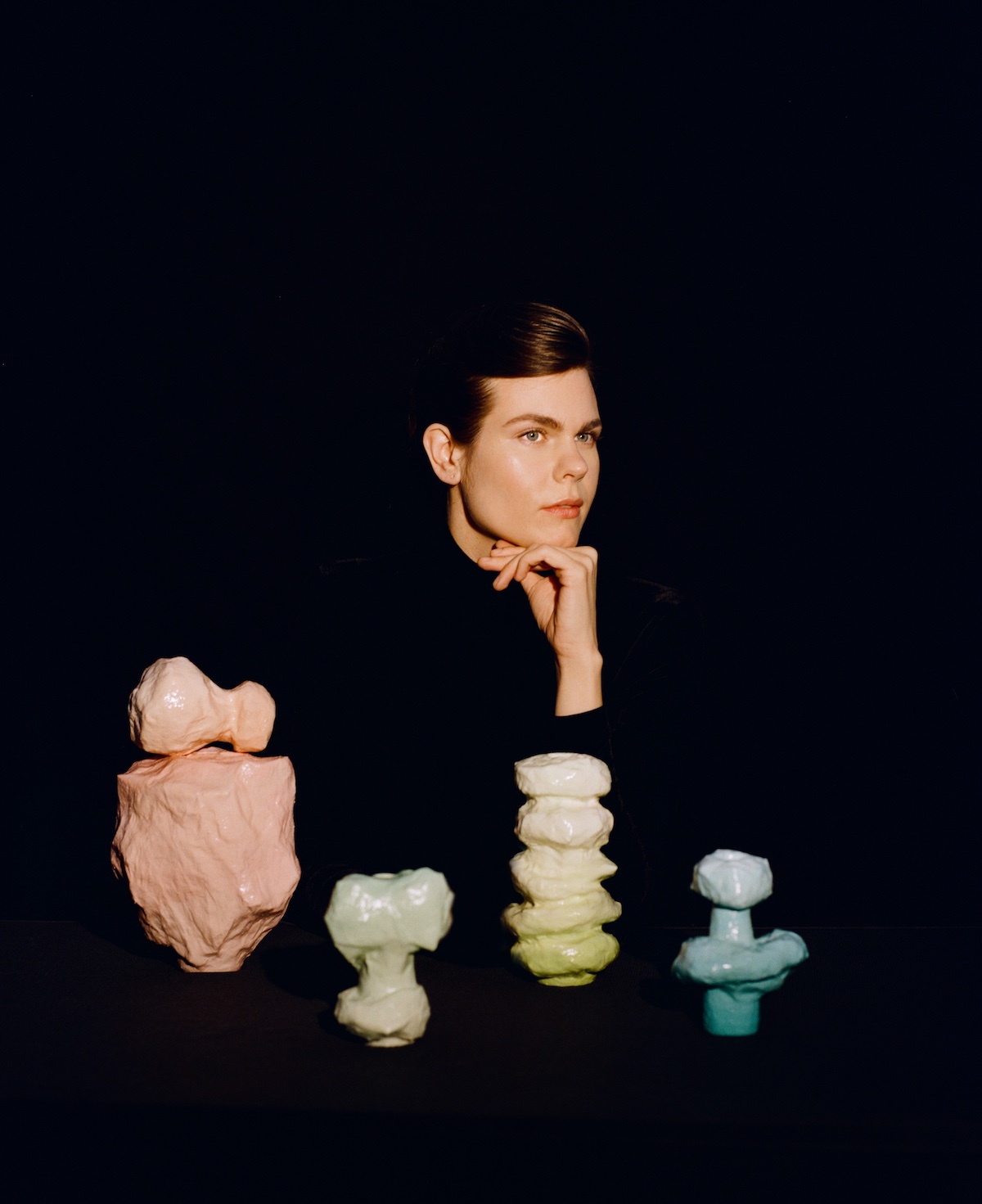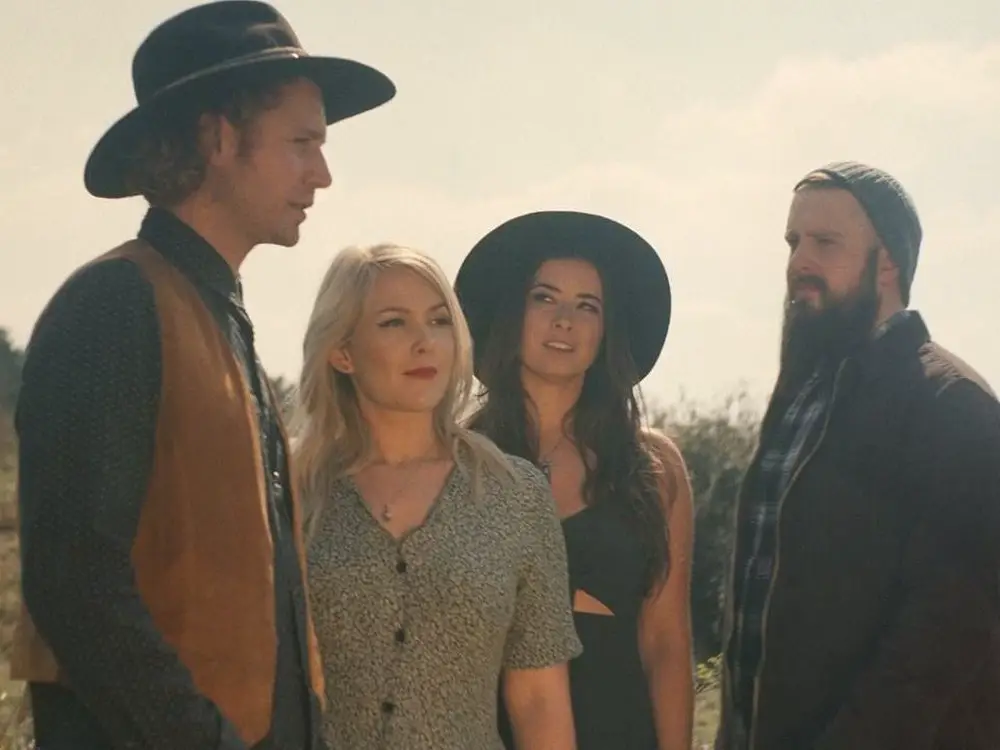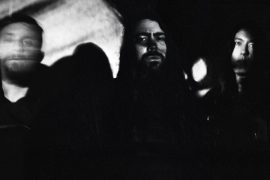A dreamy, intimate, and soothing affair, Cots’ debut album ‘Disturbing Body’ is a lush, lilting melting pot of style and substance delving into the depths of a wandering heart, a racing mind, and a searching soul.
Stream: “Inertia of a Dream” – Cots
Hauntingly beautiful and serene, Cots’ debut album is a wondrous, hypnotizing escape: A lush, lilting melting pot of style and substance delving into the depths of a wandering heart, a racing mind, and a searching soul. A dreamy, intimate, and soothing affair, Disturbing Body explores love and loss through a poetic lens full of stirring emotion and stunning, rich sound.

Limeflower on my mind…
The seeing eye, the eye that tries
To know what’s there
The meaningless pattern is beautiful…
Hey limeflower, take your time
Caught you on the train
underneath the window
isn’t motion strange
the faster it goes we go
would I love the best
underneath an oak tree
What was that you said
forgot that I was dreaming
Am I the one who dreams
too much
– “Inertia of a Dream,” Cots
Released August 11, 2021 via Boiled Records, Disturbing Body is a powerful and vivid introduction. The debut solo project of Montreal-based composer, singer, and guitarist Steph Yates, Cots’ first record envelops the ears in an avant-garde blend of bossa nova, folk, jazz, and classical music elements. The artist spares no expense in making each of her ten songs a world unto itself – building off her nylon string guitar, with the help of an assortment of friends and instrumentalists that breathe (or “pluck”) life into every second of her art.
“I wanted to make an intimate record of songs I had written for the nylon-string guitar, and I think we did that,” Cots tells Atwood Magazine. “I knew that working with Sandro Perri, it would take a shape aesthetically I couldn’t have predicted, and I embraced that. I was excited to see what we would make together. The record houses a range of songwriting; some songs are quite simple, some more intricate. But even within the songs of just two chords there are, I feel, imaginative melodies. I think the record showcases my gently unconventional song craft and oblique approach to wordplay.”
Disturbing Body takes its name from the opening track, which helps set a tender and tranquilizing tone for the overall body of work – both sonically and thematically. “It refers to a planetary pull I likened to human attraction, which seems to be an implicit theme woven through the songs,” Cots explains.
Searching for reasons that you stay away
Searching for your disturbing body
Searching for your disturbing body
The math doesn’t add up when I do it alone
How many paths travel you home?
Disturbing body luring me
How does the wind code your mystery?
– “Disturbing Body,” Cots
Metaphor and vivid imagery play a significant part in Cots’ music, balanced out by a considerable wealth of self-reflection and piercing observation. Highlights abound – from the soft and sweet “Bitter Part of the Fruit” and “Bluebird,” to more smoldering tracks like “Sun-spotted Apple” and “Inertia of a Dream” (whose video is premiering today on Atwood Magazine), Disturbing Body mesmerizes as it enchants.
Speaking of her “Inertia of a Dream” video, Cots says, “There is an allusion here to the song ‘Este Seu Olhar’ by Tom Jobim, which has the lyrics: ‘Mas a ilusão / Quando se desfaz / Dói no coração / De quem sonhou / Sonhou demais.‘ This roughly translates to: ‘But the illusion / when it comes undone / hurts in the heart / of the one who dreams / dreams too much.'”
Caught you on the train
underneath the window
isn’t motion strange
the faster it goes we go
would I love the best
underneath an oak tree
What was that you said
forgot that I was dreaming
Am I the one who dreams too much?
– “Inertia of a Dream,” Cots

Cots doesn’t cite any definitive favorites, “but I find Ryan Brouwer’s live improvised trumpet playing in ‘Last Sip’ quite gorgeous and special.” She also cites the lyrics of album closer “Midnight at the Station” and “Our Breath”: “A surprising rhyme can be very satisfying: ‘Queenie lit a cigarette / I shared an orange with a man I met.’ So can bucking the rhyme scheme altogether: ‘Swallows dipping low into the well / the search for water causes strange behaviour.’“
Ultimately, Disturbing Body offers a wellspring of empathic, visceral emotions through music that soothes as it inspires deep feelings with. “I hope that a song might evoke a feeling in listeners or some connection to their own experience,” Cots shares. “Making this record was not a straightforward process for me, and so having completed it feels like a big accomplishment. Release day, I will be celebrating.”
Experience the full record via our below stream, and peek inside Cots’ Disturbing Body with Atwood Magazine as the artist goes track-by-track through the music and lyrics of her debut album!
— —
:: stream/purchase Disturbing Body here ::
Stream: ‘Disturbing Body’ – Cots
:: Inside Disturbing Body ::

— —
Disturbing Body
“Disturbing body” is a term used in celestial mechanics to describe a planet that influences another planet’s course. The 19th Century astronomer Le Verrier is known for discovering the existence of Neptune using only mathematics. Observing the recorded orbit of Uranus against its predicted orbit under Newtonian theory, he showed that the slight discrepancies between them pointed to a previously unknown influence (which he went on to locate and describe), something he referred to in his work as a “disturbing body.” I was struck by this term when I first heard it.
Human bodies are like celestial ones; just as a planet’s course is carved out in relation to others’, our course—where we go and what we do—is also compelled by forces of attraction. This was the idea that led to the song. I imagined the allure of a ‘disturbing body’ so great that, even from a distance, it drastically, unstoppably, and mysteriously pulls someone away from you. The force that moved them is invisible and leaves you searching to understand.
Bitter Part of the Fruit
Contrast is inevitable. If you look for it, you will find that the underbelly or the aftertaste of an experience is coloured differently from the rest of it. I wrote this song in one sitting, which is unusual for me.
Sun-Spotted Apple
Love can sometimes be like (perishable) fruit.
Bluebird
This is the one song on the record where I don’t play nylon-string. Instead I played power chords on Scott Merritt’s Rickenbacker. My posture must have been poor because it gave me a wrist ache.
Inertia of a Dream
There is an allusion here to the song “Este Seu Olhar” by Tom Jobim, which has the lyrics: Mas a ilusão / Quando se desfaz / Dói no coração / De quem sonhou / Sonhou demais (which roughly translates to: But the illusion / when it comes undone / hurts in the heart / of the one who dreams / dreams too much).
Flowers
“Flowers” is a meditation on death — death as essential, awful, tragic, beautiful, mysterious. I wrote it in response to the bewildering news that someone I used to know had died. My vantage point at this time was not pressed close to death; I felt at a distance from it. I let it take on an abstract form in my writing.
Salt or Sand
“Salt” draws imagery from the Curonian Spit in Lithuania. The sand dunes there are truly remarkable, especially how they change shape. An ancient settlement is buried there in Nida. Its inhabitants were forced to leave; they were essentially displaced by the sand.
“Salt or Sand” speaks obliquely to a familial experience of displacement and survival. In the 1940s, my grandparents fled Lithuania under the Soviet occupation, obtained alien passports in Sweden, and finally immigrated to Canada as refugees. I visited Lithuania for the first time a few years ago (a country to which I now hold dual citizenship) and among the places I saw was Nida, famous for its sand dunes.
Nida lies on the Curonian Spit, a strip of land that divides ocean and lagoon. Its landscape, which I found to be so foreign, almost lunar, can change shape drastically under the weather’s influence. An ancient settlement is buried there. Its inhabitants were forced to leave; they were essentially displaced by sand.
Our Breath
With some songs lyrical meaning is not straightforward but more like a braid, and it’s like that with “Our Breath.” I can’t say what exactly the song is about. In part it has to do with a person carrying with them what they need and finding access to it in difficult moments.
Last Sip
This is a song about sadnesses. I am surprised by how plainly I sing about them.
Midnight at the Station
“Midnight” takes place while waiting for a train that is very late and might possibly not come at all. The end section is something of an outro to the entire record and I wanted it to feel different from the rest of the song. Sandro built a spot-on, dystopian sonic dreamscape for it and I love it. For me it is a perfectly ambiguous moment to end on.
— —
:: stream/purchase Disturbing Body here ::
— — — —

Connect to Cots on
Facebook, Bandcamp, Web, Instagram
Discover new music on Atwood Magazine
? © JG and Shi
:: Stream Cots ::









